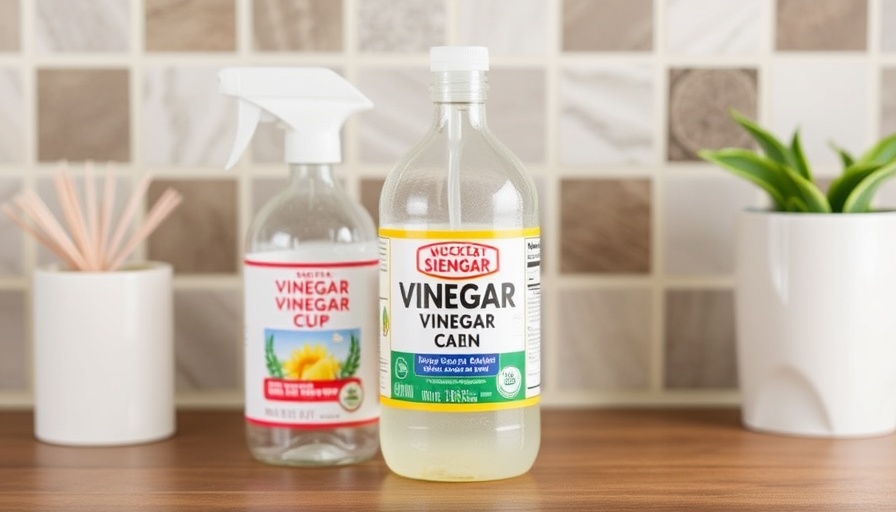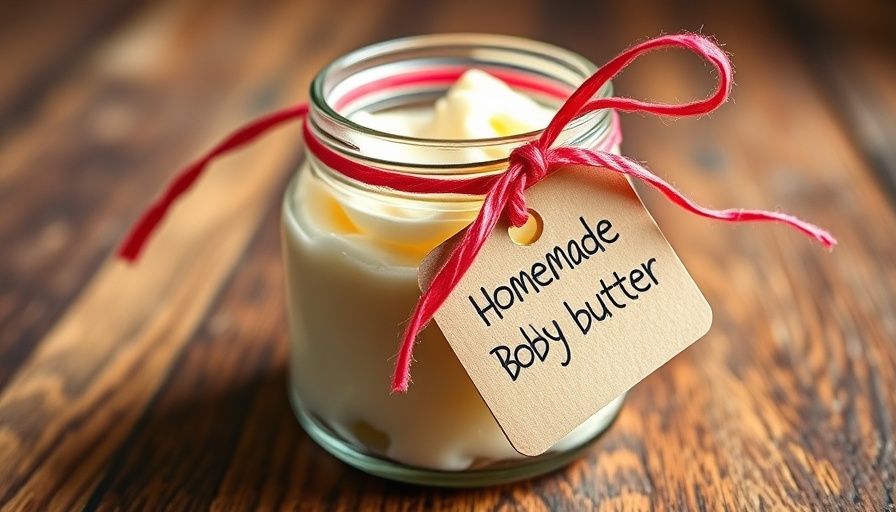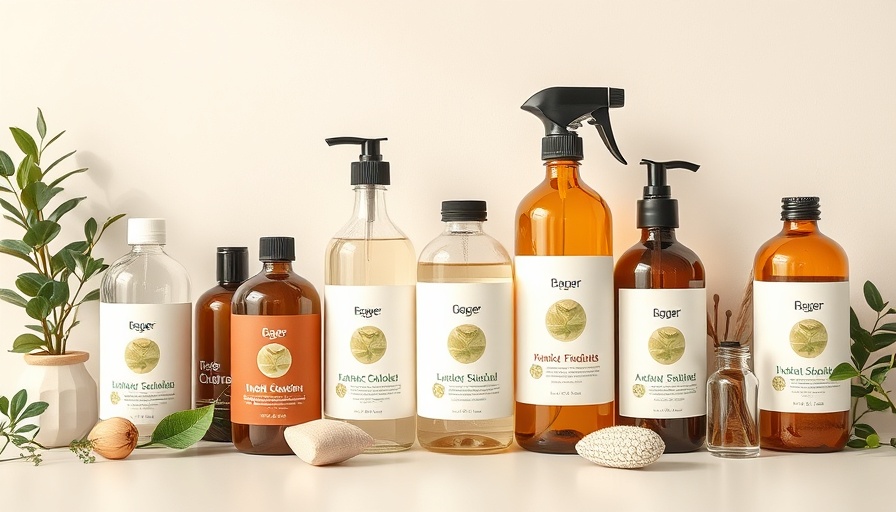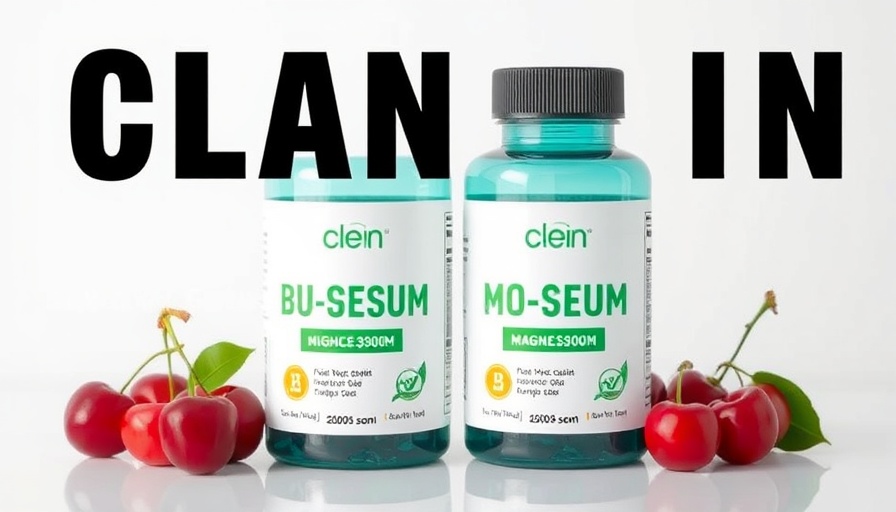
Why Switch to Vinegar for Cleaning?
In an era of heightened awareness about health and wellness, making small changes in our cleaning habits can significantly impact our home environment. For families seeking ways to reduce exposure to toxins, vinegar emerges as a budget-friendly, effective alternative to conventional cleaners. Millions are turning to natural products, and vinegar—especially in its distilled form—stands out as an all-around solution, proven to cut through grime and restore surfaces to their former glory.
The Versatile Cleaning Power of Distilled White Vinegar
Distilled white vinegar isn’t just for salads; it's a powerhouse in households striving for cleaner air and healthier living. Due to its acetic acid content, vinegar can dissolve mineral deposits, grime, and other dirt, making it perfect for various cleaning tasks. Just remember, while vinegar's pungent aroma may initially find its way into your home, it dissipates quickly, and with the addition of essential oils, you can enjoy a fresh, pleasant scent.
Effective Uses of Vinegar: Cleaning Hacks to Try
Here are five effective vinegar cleaning hacks that every busy parent should incorporate into their cleaning routine:
- Stain Removal Champion: For stubborn stains on clothing or carpets, pour undiluted vinegar directly onto the stain, let it sit, and then wash as usual. It's especially effective against wine, tomato sauce, and other deep stains.
- Window Cleaner extraordinaire: Create a spotlessly clean window solution by mixing one part vinegar with three parts water. A few drops of essential oil can enhance the cleaning effect and small bowl of soap can be added for grease.
- Natural Mold Remover: Use a mixture of one part borax and four parts vinegar in a spray bottle; this funky duo effectively tackles mold issues in your home.
- Hardwood Floor Savior: Combine one-third to two-thirds cup of white vinegar with a gallon of warm water to clean your hardwood floors. It’s efficient and leaves your home smelling clean and fresh. Just remember not to overdo it, as vinegar can damage certain finishes.
- Germ-Busting Powerhouse: Vinegar's natural acidity can eliminate bacteria, making it a great tool for disinfecting high-touch areas.
What Not to Clean with Vinegar
While the benefits of vinegar are immense, there are a few surfaces that should be avoided to prevent damage:
- Finished Wood: Excessive use can degrade the finish over time.
- Stone Countertops: Granite, marble, and other natural stones can be etched and damaged by vinegar.
- Dishwashers and Washing Machines: Overuse can harm rubber components.
- Mold: While vinegar can kill surface mold, deep-rooted issues require professional inspection.
Inspiration for Healthier Living
Switching to vinegar as a cleaning agent isn't just a chore; it’s a rewarding lifestyle change that aligns with broader health trends. As families focus on creating healthier home environments, adopting cleaning methods that fall in line with the ideals of natural living becomes increasingly appealing. Not only does it keep your home free of harmful chemicals, but it also supports a lifestyle that emphasizes sustainability and conscious consumption.
Next Steps: Transform Your Cleaning Routine
With so many benefits to embracing vinegar in your cleaning regimen, why not take the plunge? Make an informed switch today, and experience the effects of cleaner air and surfaces. Even a busy lifestyle can accommodate these straightforward swaps.
Remember, the ultimate goal is to create a household where health and wellness thrive. Combine cleaning innovation with family-centric practices, and discover how small changes can generate significant improvement.
So, gather your supplies, and get ready to reclaim your home with these acid-powered hacks that work better and are safer for your family!
 Add Row
Add Row  Add
Add 




Write A Comment